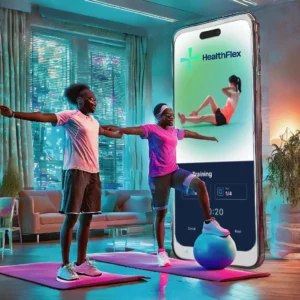Responsive Web Design Services
Custom Responsive Web Design Services

Is Your Website Losing Customers Before It Even Loads?
A non-responsive website can cost you valuable customers. Poor mobile optimization, confusing navigation, and slow load times all contribute to a frustrating user experience, leading to higher bounce rates, decreased engagement, and lost sales. In a mobile-first world, your website must adapt to all devices for a seamless user experience.
At Codewave, we focus on delivering responsive web design solutions that improve user experience and drive measurable business outcomes. Our approach goes beyond simply making websites mobile-friendly. We design to enhance engagement, boost conversions, and improve retention. Websites built with responsive design principles outperform traditional sites by delivering faster load times, better performance, and higher user satisfaction.
By utilizing tools like React, Vue.js, and Bootstrap, we craft dynamic and scalable websites that provide significant cost savings compared to traditional development processes. Our responsive designs ensure that your website performs optimally, whether accessed on a mobile device or desktop.
With our expertise, you’ll enjoy a website that adapts to your users’ needs and keeps them coming back. We turn your digital presence from a roadblock into a powerful tool that drives business growth and customer loyalty.

3x
Faster Website Revamp
30%
Reduction in Development Costs
Download The Master Guide For Building Delightful, Sticky Apps In 2025.
Build your app like a PRO. Nail everything from that first lightbulb moment to the first million.
Responsive Design That Performs Across Devices and KPIs
Our responsive web design services ensure seamless performance, mobile adaptability, and user-centric interfaces that drive engagement and measurable business outcomes.
A slow website frustrates users and hurts your business performance. Even a 1-second delay in page load time can lead to a 7% drop in conversions.
We build fast, responsive websites from the ground up, utilizing modern tech stacks such as JavaScript, React.js, Next.js, and Gatsby.
We apply performance-first principles:
- Server-side rendering (SSR) to pre-render content for faster initial loads
- Lazy loading so images and elements load only when needed
- Image optimization to cut down file sizes and improve load speed
Our design team utilizes tools like Figma and adheres to user-centric practices to create engaging, conversion-driven layouts. We ensure that every visual and interaction adds purpose, reduces friction, and keeps users moving toward your goals.
What You Can Expect
- Faster load times and reduced bounce rates
- Higher conversion rates across all devices
Example: A retail SME will see a measurable boost in mobile sales after redesigning the website with server-side rendering and performance-focused coding practices.
Over 60% of users access websites from mobile devices. If your site doesn’t respond well on phones or tablets, you’re likely losing traffic and sales. We use mobile-first design principles to ensure your site adapts perfectly to every screen size.
We build mobile-responsive layouts using:
- Bootstrap and Material-UI for flexible components
- CSS Grid and media queries for pixel-perfect responsiveness
- Touch-friendly UI elements for seamless mobile navigation
The result is a website that looks and feels native on mobile, without sacrificing functionality or aesthetics.
What You Can Expect:
- Increased mobile engagement and browsing time
- Improved user satisfaction and mobile conversions
Example: An e-commerce SME selling footwear will experience a significant rise in mobile conversions after we redesign its site using a mobile-first approach and test across all screen breakpoints.
Search engines like Google now penalize websites that aren’t mobile-friendly or well-optimized. That means slow-loading, poorly structured pages directly hurt your visibility and rankings.
We embed SEO best practices directly into your site’s architecture and front-end code. Our SEO-focused features include:
- Google AMP (Accelerated Mobile Pages) for blazing-fast mobile performance
- Structured data markup to enhance your appearance in search results by adding special tags to your site’s HTML
- Mobile-optimized UX that meets Google’s Core Web Vitals
By combining clean code with strategic enhancements, we enhance your site’s performance in organic search and attract more qualified leads.
What You Can Expect:
- Better search engine rankings
- Higher organic traffic and inbound inquiries
Example: A B2B tech startup can expect to climb up in SERP rankings and double its organic lead flow after implementing AMP pages and structured metadata across its site.
For running a high-performing website, development is not the end of the process. It has to be tested, optimized, and launched with precision. We ensure your site is flawless before it goes live, running detailed quality checks to minimize bugs and performance issues.
Our process includes:
- User Acceptance Testing (UAT) and Non-Negative Impact Testing (NNIT) to identify pain points before launch
- Cross-browser and cross-device checks to ensure consistency across all platforms
Once validated, we handle your full launch, whether it’s migrating to a new CMS, deploying updates on the cloud, or connecting your analytics. No stress, no missed details.
What You Can Expect:
- A smooth go-live experience without hiccups
- Fewer support tickets post-launch
Example: An EdTech firm can launch its new website with zero downtime and no layout bugs, thanks to end-to-end QA and deployment management.
Design is more than just about looking good. It should convert visitors into customers. We apply CRO strategies to ensure your site doesn’t just get traffic, but converts it into action. From clear CTAs to streamlined navigation, we remove barriers to user flow.
We implement CRO strategies using:
- React.js and Vue.js for dynamic, fast-loading interfaces that respond instantly to user actions
- A/B testing tools like Google Optimize or VWO to compare CTAs, layouts, and user flows
- Heatmaps and session replay tools (e.g., Hotjar, Microsoft Clarity) to track user behaviour and identify drop-off points
- Form analytics to measure form abandonment rates and optimize fields for better submission rates
- Google Tag Manager for tracking micro-interactions like scrolls, clicks, and time on page
We also integrate schema markup and UX micro-interactions that guide users through key actions, such as signing up, booking a call, or making a purchase.
What You Can Expect:
- A more intuitive experience that encourages action
- Higher conversions from paid, organic, and referral traffic
Example: After implementing an intuitive design and optimized navigation, a law firm will be able to reduce user exits by making it easier for visitors to engage with their content and services.
Tracking user behaviour across devices shouldn’t feel like decoding a puzzle. We simplify your analytics ecosystem by integrating user behaviour tracking tools into your website right from the design phase.
What We Deliver:
- Unified dashboards showing cross-device behaviour
- Custom event tagging for conversions, drop-offs, and time on page
- Clean data pipelines that integrate with your CRM or marketing stack
What You Can Expect:
- Clear visibility into user journeys
- Data-backed decisions for future updates
Example: A SaaS business can gain insights into where trial users are dropping off on mobile. Furthermore, they can expect improved activation rates after we redesign the page flow.
Our Foolproof Approach to Responsive Web Design
We’ve seen too many businesses lose customers due to poor website performance across devices. At Codewave, we treat your website’s responsiveness as a core part of your business goals. Our approach ensures your site is fast, user-friendly, and optimized for engagement on every device.
We begin by understanding your unique business needs, including specific goals (e.g., increasing online sales, enhancing user retention) and challenges (e.g., high bounce rates, low mobile conversion rates).
Through user research and empathy sessions, we identify specific pain points such as difficulty navigating the site on mobile devices, slow-loading pages on tablets, or inconsistent user experiences across devices.
With this knowledge, we develop a responsive design strategy that ensures your website is optimized for mobile-first design, seamless navigation, and faster load times. Furthermore, we ensure that the plan is aligned with your business objectives.
Next, we ideate and prototype, utilizing creative techniques such as mind mapping, storyboarding, and wireframing to explore multiple design solutions that prioritize user experience. We create low-fidelity mockups (such as basic wireframes or interactive prototypes) that help visualize the responsive design, allowing us to gather user feedback early in the process.
This iterative approach ensures that the design is continuously refined and aligned with your users’ needs and expectations across different devices and screen sizes. This gives you a clear path before development begins.
With our agile design process, we work in short, focused sprints to refine and enhance your responsive website. By holding daily scrums and gathering continuous feedback through user testing sessions, A/B testing, and client reviews, we ensure that the design evolves based on real-time data. These include user behavior analytics and conversion metrics.
This enables us to gather user insights from sessions, including click-through rates and feedback surveys. This flexibility allows us to make necessary adjustments quickly, whether it's tweaking navigation elements, optimizing page speed, or adjusting layout responsiveness.
To deliver faster results, we use Code Accelerate, our library of pre-built responsive components. This enables us to create a fully optimized, mobile-friendly site 3x faster while maintaining the flexibility to customize the design according to your brand's needs. You get high-quality, responsive websites without the long wait.
After your site is live, we track user behavior, including click patterns, scroll depth, and heatmaps, to understand how users interact with your site across different devices. We also monitor performance metrics to ensure they continue to meet user expectations.
By analyzing key performance indicators (KPIs) like user engagement, session duration, and goal completions, we identify areas for improvement. Then, we optimize and adjust the design as needed, keeping your website fast, engaging, and relevant to your audience across every device.
Codewave’s Custom Websites vs. Generic Templates: The Clear Winner
| Aspect | Codewave’s Custom Responsive Web Design | Generic Template Design |
| Focus | Tailored to your business goals and specific user needs. | Built for a broad audience with basic, one-size-fits-all features. |
| Flexibility | Fully customizable layouts and features that grow with your brand. | Limited design and functionality with rigid layouts. |
| Functionality | Custom-built to meet unique user behaviors. | Pre-set functionality that may not align with your user browsing requirements. |
| Scalability | Seamlessly scales as your business evolves. | Hard to scale and adapt as your business grows. |
| User Experience (UX) | Tailored UX designed around your target audience for higher engagement. | Generic UX that may fail to meet user expectations. |
| Development Process | Collaborative and iterative, ensuring the design fits your vision. | Template-driven, often lacking flexibility and user involvement. |
| Cost/Value Trade-off | Invest in long-term value with scalable, effective solutions. | Lower initial cost, but limited value in the long run. |
The Technology Stack
| Design Category | Tools/Technologies |
| Design & Prototyping | Figma, Sketch, Adobe XD |
| Frontend Development | React.js, Vue.js, Next.js, Bootstrap, Material-UI |
| Responsive Layouts | CSS Grid, Flexbox, Media Queries, Bootstrap |
| User Experience (UX) Design | UserFlow, InVision, Figma Prototyping |
| Performance Optimization | Lazy Loading, Image Optimization, WebP, SSR (Next.js) |
| Cross-Device Testing | BrowserStack, Responsinator, Google Mobile-Friendly Test |
| SEO Optimization | Google AMP, Structured Data, Schema.org |
| Analytics & Monitoring | Google Analytics, Hotjar, Crazy Egg, New Relic |
| Version Control | Git, GitHub, Bitbucket |
| Web Hosting/Platforms | AWS, Microsoft Azure, Netlify, Vercel |
| Security & Compliance | HTTPS, SSL Certificates, Content Security Policy (CSP) |
| Content Management Systems | WordPress, Contentful, Strapi, Sanity |
Responsive Experiences Built for Impact, No Matter the Sector
| Industry | How Codewave Helps |
| Fintech | Mobile-optimized dashboards enable real-time financial tracking, while secure mobile banking features and responsive loan applications enhance accessibility for users on the go. |
| Education | Responsive learning management systems (LMS) provide students with mobile-optimized course content and interactive quizzes, ensuring a seamless learning experience. |
| Healthcare | Mobile-optimized patient portals enable easy appointment scheduling and access to electronic health records, while responsive telemedicine solutions and fast load times enhance accessibility to critical health data. |
| Agriculture | Mobile-friendly crop management portals, responsive weather forecasting tools, and real-time data tracking help farmers manage their operations efficiently. |
| Transportation | Responsive vehicle tracking systems, mobile-friendly booking forms, and optimized scheduling tools offer smooth, user-friendly logistics management for both drivers and customers. |
| Retail | Mobile-first e-commerce platforms, fast-loading product pages, and responsive checkout processes enhance conversions and ensure a seamless shopping experience across all devices. |
| Travel | Responsive booking interfaces, responsive travel itinerary templates, and real-time destination updates enhance user experience and engagement throughout the entire booking process. |
| Insurance | Responsive claim forms and policy management portals, mobile-optimized premium calculators, and easy access to coverage details improve the customer experience in managing their insurance needs. |
Transforming Web Experiences, One Business at a Time
Discover how SMEs are transforming their online presence with Codewave’s responsive web design services. They’re not just upgrading their sites to something fancy; they’re boosting engagement and driving growth.
Explore the impact in our portfolio!
We transform companies!
Codewave is an award-winning company that transforms businesses by generating ideas, building products, and accelerating growth.
A Network of Excellence. Our Clients.
Frequently asked questions
Codewave’s responsive web design focuses on creating customized, user-centric websites that perform seamlessly across all devices and platforms. With 400+ successful projects and experience across 15+ industries, we understand how to meet unique business needs while ensuring optimal user experience, fast load times, and scalability.
The three basic elements for responsive web design are:
- Flexible Grid Layout: Adapts to various screen sizes.
- Media Queries: Apply different styles based on device characteristics.
Fluid Images and Media: Scale images and media to fit any screen without distortion.
Absolutely! Codewave provides ongoing support to address content alignment issues post-implementation. Whether it’s text, images, or interactive elements, we ensure your content remains properly aligned across all devices, improving user experience and ensuring consistency on mobile, tablet, and desktop.
While it’s possible to use website builders like Wix or WordPress to create a basic responsive site, achieving a high-quality, customized design often requires some understanding of coding. Codewave’s experts can help you build a fully responsive, user-friendly website that fits your brand and business needs, without the hassle of coding yourself.
We commonly use Bootstrap and Foundation for responsive web design. These frameworks offer flexible grid systems, pre-designed components, and media queries, enabling us to create fast and responsive websites that adapt seamlessly across various devices and screen sizes. We also utilize custom solutions when a more tailored approach is required.
We use media queries to adjust the visibility of content based on screen size. For smaller devices, we prioritize key content and hide or condense less critical elements to ensure a clean, user-friendly experience.
Latest thinking
Frustrated with Slow Load Times and Poor User Experience?
Let’s Optimize Your Website Today































































